Premier Sponsors
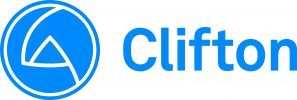
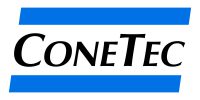
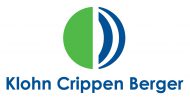
Major Sponsors


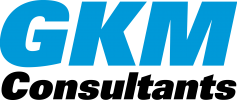

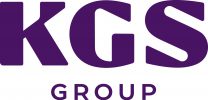
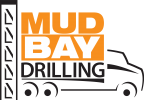




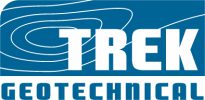

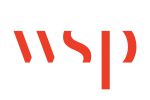
Short Courses
GeoVirtual 2020 is pleased to offer the following short courses in addition to the official conference program:
- SC1: Introduction to BUILD3D
- SC2: In-situ testing using pressuremeters
- SC3: Using numerical tools Settle3, Slide3, RS2 and RS3 for geotechnical applications
- SC4: Instrumentation and monitoring for oil and gas industry and in mine tailings
Please note: Short Courses will be given in English only. GeoVirtual 2020 reserves the right to cancel a short course should the minimum number of registrants not be reached. In the event of a cancellation, registrants will be notified by email and offered a transfer to another course or a full refund. You do not need to register for the conference to attend a short course.
Registration for short courses is now closed.
Instructors: Dr. Edward Dzik and Erika Harrison, M.Sc.
Date: Thursday, September 17, 2020
Time: 9:00 am – 1:30 pm (MDT)
Cost: GeoVirtual Delegate: $75 (early bird) | $100 (regular)
GeoVirtual Student: $50 (early bird) | $75 (regular)
Non-Delegate: $125 (early bird) | $150 (regular)
This session will focus on general 3D model construction using BUILD3D.
BUILD3D is the 3D geometry building component of GEOSLOPE’s GeoStudio Suite of geotechnical software. The GeoStudio suite is used for geotechnical analysis of soil and groundwater and is used extensively for analysis, testing, and design by geotechnical and civil engineers. The software is designed to accommodate geotechnical engineering projects that require continuum analysis.
Topics in this session will include:
- Introduction to feature based modelling
- Creating geometry from existing 2D models
- Importing geometry from external sources
- Boolean operations, imprinting, cutting solids
- Assigning materials and boundary conditions
- Mesh generation
- Visualization of results
About the Instructors:
Dr. Edward Dzik
Dr. Dzik is a geological engineer with specialization in numerical modelling software for advanced geomechanical analysis of soil, rock, and ground support. His research interests include rock fracture, advanced constitutive models for geo-materials, 3D geometry clean-up and mesh generation. Dr. Dzik is a Principal Engineer at GEOSLOPE.
Erika Harrison, M.Sc.
Ms. Harrison is a software developer specializing in user interface development and 3D computer graphics. Her research interests include visualization methods, data structures and algorithms for 3D graphics, and advanced user interaction techniques. Ms. Harrison is a Software Developer at GEOSLOPE.
SC 2: In-situ testing using pressuremeters
Instructors: Dr. David Elwood, P.Eng. and Robert Whittle
Date: Thursday, September 17, 2020
Time: 9:00 am – 4:00 pm (MDT)
Cost: GeoVirtual Delegate: $75 (early bird) | $100 (regular)
GeoVirtual Student: $50 (early bird) | $75 (regular)
Non-Delegate: $125 (early bird) | $150 (regular)
Pressuremeters are now well-established tools for determining the engineering properties of the ground insitu. The business of getting the equipment into the ground has major implications for understanding the field data. The test can provide high quality data for the strain dependency of shear modulus. What can and cannot be obtained from the test will be examined. Some alternative approaches to the use of the equipment and test procedure will also be presented. The course will focus at the pressuremeter from its inception and different forms, Menard through to the Cambridge system. Discussion will move into the key factors of the use of the probe, primarily, how important the borehole is for certain aspects like K0. Next, we will move into basic interpretations and understanding of the factors needed for using the data effectively. Moreover, recognizing when data is not best and how to determine a level of reliability from the data. This section will focus on the analysis methods for different materials ranging from undrained clays, followed by dense sands and moving into cohesive frictional models, weak rocks and loose sands. Finally, we will move into applications and design usage followed by several case studies to demonstrate its correct use.
About the Instructors:
Dr. David Elwood, P.Eng.
Dr. Elwood is an Assistant Professor in geotechnical engineering at the University of Saskatchewan. He has published several papers on the topic of the pressuremeter and its applications as well as soil mechanics and site characterization and is currently on the editorial board of the Canadian Geotechnical Journal. He is also the lead author for the Site Investigations and Classifications chapter of the CFEM 2020. Dr. Elwood is a standing member of the Technical Committee for Ground Property Characterization from In-Situ Tests (TC-102) as part of the International Society of Soil Mechanics and Geotechnical Engineering (ISSMGE). He has been an active consultant nationally and internationally for 20 years and has extensive experience with site characterization and development of material properties for a wide range of geo-materials. His research has focused on the characterization of hard, overconsolidated soils and soft rocks for a variety of applications, including tunnelling deep excavations and slope stabilization.
Robert Whittle
Robert Whittle is part owner of Cambridge Insitu Ltd (CI) and has been associated with the company since 1978. He has a background in electronics and his initial involvement concerned the production of ancillary equipment for the Self Boring Pressuremeter (SBP). As CI evolved into a service provider as well as manufacturer, he became an expert in pressuremeter testing and analysis, operating globally on sites extending from remote parts of Africa to the heart of New York. He has worked extensively in Hong Kong and Singapore and has published several conference and journal papers on aspects of the pressuremeter test and interpretation. His particular interest is the stress and strain dependency governing the unload/reload response of soils.
SC 3: Using numerical tools Settle3, Slide3, RS2 and RS3 for geotechnical applications
Instructor: Dr. Sina Javankhoshdel
Date: Thursday, September 17, 2020
Time: 9:00 am – 5:00 pm (MDT) half-hour lunch break
Cost: GeoVirtual Delegate: $75 (early bird) | $100 (regular)
GeoVirtual Student: $50 (early bird) | $75 (regular)
Non-Delegate: $125 (early bird) | $150 (regular)
Morning Session (9:00am – 12:30pm)
Module I ‐ Settlement Analysis Using Simplified Numerical Techniques
- Stress analysis methods and concepts
- Settlement analysis concepts
- Immediate, consolidation and secondary settlement calculations using Settle.
- Flexible vs. rigid loads
- Embankment designer
- Empirical methods
- Wick drains analysis
- CPT analysis
Module II: Introduction to 3D geometry creation using Slide3 and RS3
- Geometry defects and repairs
- 3D Geometry creation tool
- Tips and recommendations for 3D geometry creation
Afternoon Session (1:00pm – 5:00pm)
Module III – Introduction to the Finite Element Method for geotechnical problems
- Model development (construction of geometry, meshing, loads and boundary conditions, analysis options)
- Material models and constitutive relations
- Interpretation of results
- Classical material models (Mohr coulomb, Generalized Hoek Brown)
- Anisotropic material (explicit and implicit) models using RS2 and RS3
Module IV: 2D and 3D Support analysis tools
- Support development in 2D and 3D using RS2 and RS3
- Sequence design
- 2D and 3D support elements (forepoles, liners, bolts, structural elements)
- Interpretation of results
About the Instructor:
Dr. Sina Javankhoshdel
Dr. Sina Javankhoshdel is a Geomechanics Specialist at Rocscience. He holds his Ph.D. from Queen’s University in Civil Engineering (Geomechanics). Sina joined Rocscience in 2016 and he was one of the geotechnical developers of Slide2 software, to which he added Spatial Variability Analysis. He has published more than 20 papers on the topic of probabilistic analysis of slopes and retaining structures considering spatial variability.
SC 4: Instrumentation and monitoring for oil and gas industry and in mine tailings
Instructors: Dr. Pierre Choquet, Jeff Barrett, James Saunders, Alan Jones, and Dr. Vincent Le Borgne
Date: Thursday, September 17, 2020
Time: 9:00 am – 4:00 pm (MDT)
Cost: GeoVirtual Delegate: $75 (early bird) | $100 (regular)
GeoVirtual Student: $50 (early bird) | $75 (regular)
Non-Delegate: $125 (early bird) | $150 (regular)
This short course offers an overview of geotechnical instrumentation, from the fundamentals to the real-life applications. The fundamentals of instrumentation will be covered as well as how to understand specifications offered by manufacturers. Real-life experience and theory will be combined to give a thorough overview of several types of instruments. Industry leaders from Canada and the USA will provide tailored training sessions on many key topics of modern geotechnical practices. Non-contact measurements as a complement to classic geotechnical instrumentation will be presented in the context several applications. In-depth discussions of various types of in-ground instruments will be given. Modern methods of data collection from instruments will also be addressed, showcasing real-life applications of several technologies, including LORA-based systems, cloud systems and different flavours of remote control.
About the Instructors:
Dr. Pierre Choquet
A wide variety of VW and MEMS geotechnical instruments are now commonly available. The presenter will attempt to summarize his views on what works well and what areas could be improved with commonly used and recently introduced geotechnical instruments, both on the point of view of their design and their installation.
Pierre Choquet has been involved in the field of Geotechnical Instrumentation and Monitoring for most of his career. He joined RST Instruments of Vancouver, BC in 2007 and is now Technical Advisor and Vice-President of Market Development. Pierre graduated in Geological Engineering (Engineering Geology) from Ecole Polytechnique in Montreal and subsequently obtained a doctorate degree in Rock Mechanics from Ecole des Mines de Paris in France. From 1982 to 1993 he was a faculty member at the department of Mining and Metallurgy of Laval University in Quebec City where his specialty was rock mechanics, ground control, and applied geology. Pierre is also the recently appointed Editor of the Instrumentation and Monitoring column of the Canadian Geotechnique magazine.
Jeff Barrett
This presentation describes the design and performance of Measurand’s ShapeArray inclinometer systems in deformation monitoring associated with oil sands tailings management. The presentation examines the best practices and real-world examples of implementation of ShapeArrays to monitor ground movement, automated data collection, and visualization of said data to make informed engineering decisions.
Jeff Barrett, M.Sc.E., P.Eng., is a Geotechnical Engineer and President of Measurand. Prior to joining Measurand he was a Senior Geotechnical Engineer for a major consulting firm where he served as technical lead and project manager for multidisciplinary design and performance monitoring projects in the mining, urban construction, and dam sectors. Jeff also served as the National Lead for advanced geotechnical numerical modelling for the firm. Jeff holds a Bachelor’s Degree in Civil Engineering, Masters Degree in Geotechnical Engineering, and Diploma in Technology Management from the University of New Brunswick.
James Saunders
Ground Based Radar and InSAR (Interferometric Synthetic Aperture Radar) are innovative remote sensing techniques currently being used to accurately track surface deformations. These can effectively complement conventional, and automated monitoring approaches. Case studies will be presented detailing best practices for the planning, design, and deployment of these innovations.
James Saunders studied Civil Engineering at Queen’s University. Following graduation, he pursued innovative IoT solutions for geotechnical and mining industries. Alongside ConeTec, he founded VEGA which developed, managed and deployed proprietary integrated data solutions for mining and geotechnical clients across North and South America. James joined SIXENSE in 2018 as Business Development Manager, establishing the Vancouver, Canada office.
Alan Jones
Robotic total stations provide a robust monitoring system for geotechnical and structural monitoring applications. If you are not familiar with this technology or are thinking of using it on an upcoming project then this short-course is time well spent.
Alan Jones has over 25 years’ experience in geotechnical and structural instrumentation and monitoring. Alan has worked in contracting, consulting and manufacturing in a variety of technical, sales and managerial roles. Alan has worked on small and large monitoring projects across Europe, North and South America and Asia.
Dr. Vincent Le Borgne
Working as a Research & Development Manager for GKM Consultants, Vincent gained tremendous hands-on experience with many geophysics and geotechnical instrumentation technologies such as vibrating wire geotechnical instruments (Geokon), Noise and vibration monitoring (Instantel, Syscom), Data visualization platforms (Vista Data Vision, Sensemetrics), Inclinometers (Measurand, Jewell), Data logger control and programming (Campbell Scientific, LoadSensing). He also has extensive experience developing photovoltaic and photo detection systems. Through his project experience in Canada, Vincent has shown the ability to manage and deliver important monitoring projects, planning and coordinating field work with our clients, providing technical guidance to subcontractor and on-site staff, installation execution, sampling, logging and monitoring measurements, data management and quality control, writing technical reports in both French and English. He has published paper in specialized journals on a variety of topics pertaining to instrumentation and has offered training and classes to professionals and university students in Québec and Ontario.

